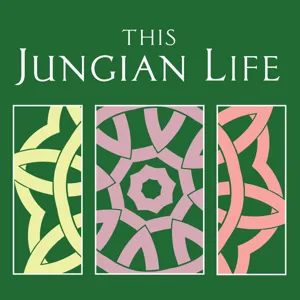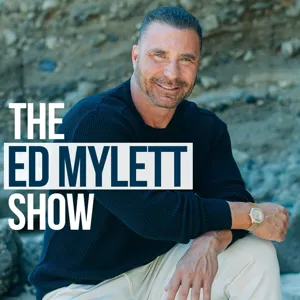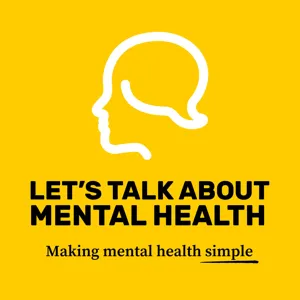Podcast Summary
Understanding the Complexity of Taking Offense: Recognizing the underlying motivations for taking offense can lead to greater self-awareness and tolerance, fostering healthier relationships and a more compassionate society.
Taking offense is a complex psychological response rooted in our sense of self and desire to be right. When someone challenges our self-image, we may experience negative emotions and feel the need to defend ourselves. This can occur on a personal level with close relationships or on a broader cultural level, such as in political or social spheres. As Jungian analysts, Lisa Marciano, Deborah Stewart, and Joseph Lee invite us to explore this phenomenon and consider how we can stay open and curious rather than reactive and judgmental. By recognizing the underlying motivations for taking offense, we can cultivate greater self-awareness and tolerance, fostering healthier relationships and a more compassionate society.
Defending Our Identity: Emotional Responses to Criticism: Criticism of our personas can trigger strong emotional defenses and project our own unaccepted traits onto others. Acknowledging our fallibility and doing inner work is a healthier alternative.
Our personas, which include our identities based on religion, profession, culture, and moral beliefs, play a significant role in shaping how we see ourselves. Criticism of these aspects of our identity can evoke strong emotional responses, such as moral outrage, as a defense mechanism against feelings of guilt or shame. This defense mechanism, often labeled as "virtue signaling," is a denial of our shadow, the part of ourselves that contains aspects we find unacceptable or incompatible with our conscious attitude. The more we cling to our persona and reject those who hold different views, the more we project our own shadow onto others. It's easier to be outraged than to do the inner work required to understand our complex feelings and confront our fallibility. As Jung noted, anything that disappears from our psychological inventory is likely to turn up as a hostile neighbor, and it's better to acknowledge that our worst enemy may be within ourselves.
Identifying our own shadow through others' reactions: Recognize that harsh reactions towards others may reflect our own hidden qualities, but beware of outrage culture and virtue signaling, which can harm our self-esteem and relationships.
Our reactions to others, whether it's face-to-face or through social media, can reveal aspects of our own selves that we may not want to acknowledge. James Hollis, a Jungian author and speaker, suggested that our strongest negative reactions towards others can help us identify our own "shadow" qualities. However, it's important to distinguish between personal offenses and the outrage culture phenomenon, where people vent their anger towards others who are not directly affecting them. This displaced rage can serve as a way to boost one's own sense of self-righteousness and virtue, creating a sense of status and compensation for low self-esteem. This can lead to behaviors such as virtue signaling, where individuals hunt for and attack others who they perceive as less virtuous. Ultimately, these reactions can wound our sense of self-esteem and identity, whether it's through a comment at the dinner table or a javelin thrown across the Grand Canyon.
Inevitability of causing offense: We cannot avoid causing offense, even with good intentions, and it's important to acknowledge this truth to live authentically.
We cannot completely avoid causing harm or offense to others, no matter how hard we try. This concept was discussed in relation to Machiavelli's idea of deflecting criticism by accusing others of our own sins, but it goes beyond that. Just as giants in ancient India tried to avoid harming insects by being carried in litters, we may try to be extra virtuous by avoiding stepping on ants metaphorically speaking, but in doing so, we may unintentionally cause more harm. Instead, it's important to acknowledge that we are all offenders and offended, and that being true to ourselves and following our deeper impulses may put us at odds with cultural norms. This can result in offense, even if unintended. Religious figures like Christ serve as examples of individuals who were persecuted for transgressing cultural norms. Offense can occur in small ways, such as violating social norms, and it's an inevitable part of the process of individuation and upholding our own truth.
Understanding the Role of Emotions in Shaping Social Norms: Emotions like offense and outrage can enforce social norms, but constant expression can be perceived as shocking or offensive. It's essential to distinguish between personal and collective harm to promote healthier communication.
Our emotions, such as offense and outrage, play a significant role in shaping and enforcing social norms. However, constantly expressing opinions or discussing sensitive topics, like the cost of things or controversial issues, can be perceived as shocking or offensive in certain contexts. When we feel offended or outraged, we may be defending ourselves against perceived harm, but it's essential to consider what we're defending against and whether it's a personal boundary or a collective norm. In therapeutic settings, it's crucial to explore the psychological implications of these emotions and understand that they can sometimes be used as a defense mechanism to avoid introspection. Ultimately, being aware of the distinction between personal and collective harm can help us navigate social situations more effectively and promote healthier communication.
Impact of Comments on Self-Image: Comments can deeply impact self-image and trigger defensive responses, often due to past experiences and unconscious projections. Agreeement or a hook is necessary for criticism to have an effect, and fear of repercussion can also play a role.
Comments, whether intended or not, can deeply impact a person's self-image and trigger defensive responses. When someone makes a comment that resonates with a person's insecurities, it can lead to feelings of shame, anger, or defensiveness. This response can stem from past experiences and defensive structures, particularly around body image and weight. Jung believed that these feelings can also be unconsciously projected onto others, creating a vicious cycle of inferiority and defensiveness. The key is to recognize that there needs to be some agreement or hook for the criticism to have an effect, and that fear of repercussion can also play a role. Understanding this dynamic can help us navigate sensitive conversations and avoid unintentionally wounding others.
The Harm of Offensive Comments: Offensive comments, whether true or not, can cause reputational damage, personal threats, and emotional distress. Develop resilience and self-support to bounce back instead of staying stuck in offense.
False accusations and offensive comments, whether true or not, can cause significant harm to individuals, leading to reputational damage, personal threats, and emotional distress. The line between being offended and being harmed is not always clear, and society seems to place an excessive value on offense. It's crucial to develop resilience and self-support to bounce back from offensive comments instead of staying stuck in the feeling of offense. The power of the accuser can be destructive, and it's essential to differentiate between repairing one's self-image and assuming that every offense will cause injury. Building resilience and self-support will help individuals become less vulnerable to the attitudes and beliefs of others.
Building a strong self-image: Cultivate a strong sense of self through unconditional positive regard, interest in feelings and goals, and resources for pursuing agency. Stay adaptive while maintaining balance with core beliefs.
We cannot shield ourselves from the world's challenges and potential offenses, but we can develop a strong sense of self and self-image that allows us to navigate through life with resilience. Jung believed the world is a battleground, and we need to be sturdy and self-supporting to face it. Parenting and education play crucial roles in fostering a child's strong self-image, which can be achieved through unconditional positive regard, taking interest in their feelings and goals, and providing resources for pursuing their agency. In the dream discussed, the dreamer's neighbor suggested drinking a lemon tincture with blood, which the dreamer found shocking and refused to do. This dream might symbolize the dreamer's reluctance to embrace new experiences or ideas that challenge her beliefs or values. Overall, the key takeaway is the importance of having a strong sense of self and being adaptive while maintaining a healthy balance between being open to new experiences and staying true to our core beliefs.
Exploring the Unknown Self: The dream highlights the importance of embracing and exploring the unknown aspects of oneself, despite initial discomfort or fear.
The dream reflects the dreamer's inner conflict and ambivalence towards exploring alternative spiritual practices, specifically shamanism and the occult. The neighbor, who represents an aspect of the dreamer's psyche, offers her a healing tincture made with blood, symbolizing the potential benefits and risks of delving deeper into these unconventional beliefs. The dreamer's reluctance and discomfort highlight the hidden, long-term interest in these practices, which she feels shy about sharing and exploring fully. The appearance of the neighbor, who is an alternative healer, suggests that there is a part of her that is curious and comfortable with these practices but her ego resists, finding it bizarre and weird. The dream serves as a reminder of the importance of embracing and exploring the unknown aspects of oneself, even if it feels uncomfortable or threatening at first.
Exploring the Shadow through Dreams: Dreams can reveal the unconscious mind's invitation to explore the shadow, leading to healing and growth, but may also challenge the ego's comfort and trust with transgressive and primal imagery.
Dreams, like the one described, can represent the unconscious mind's invitation to explore the shadow, a part of ourselves that may be uncomfortable or even taboo. This shadow can bring about healing, but it may also be transgressive and primal, challenging the ego's comfort and trust. The dream's imagery, such as drinking blood, may not be easily understood or categorized as purely symbolic or literal. Instead, it may hold elements of both, reflecting the complex nature of the unconscious. The relationship between the ego and the shadow is crucial in this process, as trust and acceptance of the shadow can lead to growth and transformation. The dream may also reflect real-life relationships and experiences, adding another layer of complexity to its interpretation.
The contrasting symbols of blood and lemons represent the dreamer's journey towards healing and connection with the shamanic world: Explore the depths of your psyche, embrace the unknown, and discover the healing potential of ancient practices like tinctures.
The dreamer's journey towards healing and connection with the shamanic world involves exploring the primal and the familiar, as represented by the contrasting symbols of blood and lemons. Blood represents the archaic and the unknown, while lemons offer a more benign and familiar image of transformation. The dreamer's association with the strange and gross suggests her ego's defense mechanisms against the alien. Tinctures, an ancient method of extracting a plant's healing properties, offer a metaphor for the potential power of mixing the known and the unknown. The blood, carrying spiritual properties based on previous incarnations, may represent a deeper connection to self and ancestors. This dream is a complex and significant one that invites the dreamer to delve deeper into her psyche, consider the intricacies of intimacy, and explore the healing potential of the unknown.
Understanding dreams about intimacy: Dreams about intimacy can evoke fear and discomfort, but they're a natural part of emotional growth and connection.
The dream may reflect the dreamer's fear and discomfort around deep emotional connections. Intimacy can be a vulnerable and uncertain experience, leading to feelings of danger, craziness, weirdness, and even grossness. However, these feelings may be a sign of growth and an opportunity for the dreamer to explore deeper emotional connections. It's important to remember that these feelings are normal and a natural part of the human experience. If you're feeling uneasy about intimacy, consider exploring the root causes and seeking support from trusted friends, family, or a mental health professional. And don't forget to share your dreams with us for possible interpretation on future episodes of This Jungian Life. You can find us on Twitter, Facebook, and Patreon. Keep living this union life, and remember that growth often comes with discomfort.





